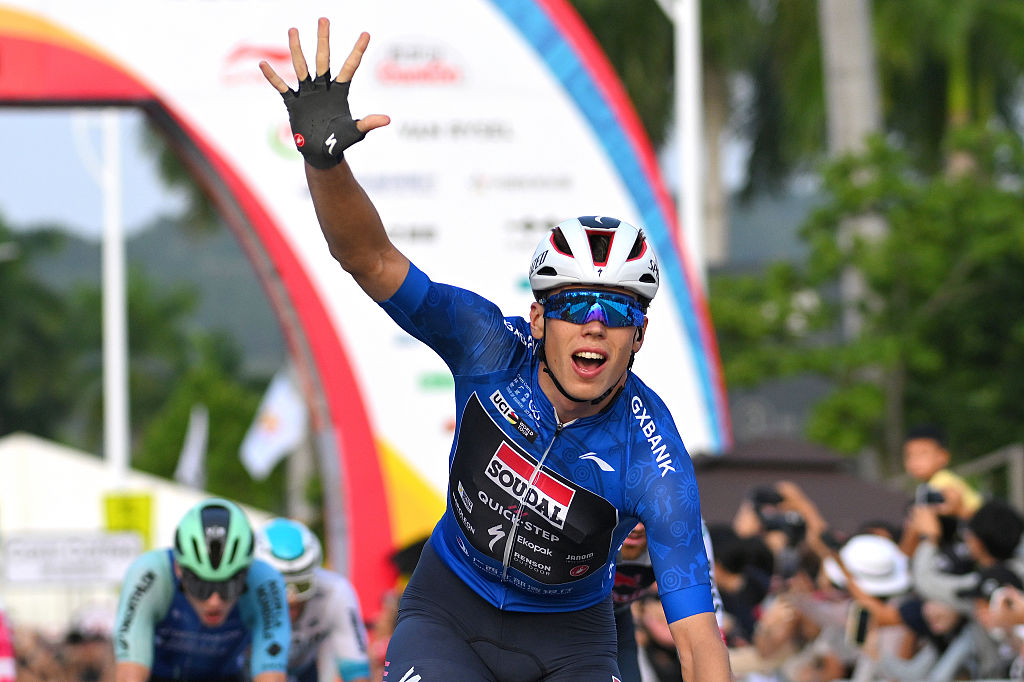Valverde's Worlds win was anything but a surprise, says coach
Movistar trainer Mikel Zabala analyses Spanish veteran’s rainbow victory
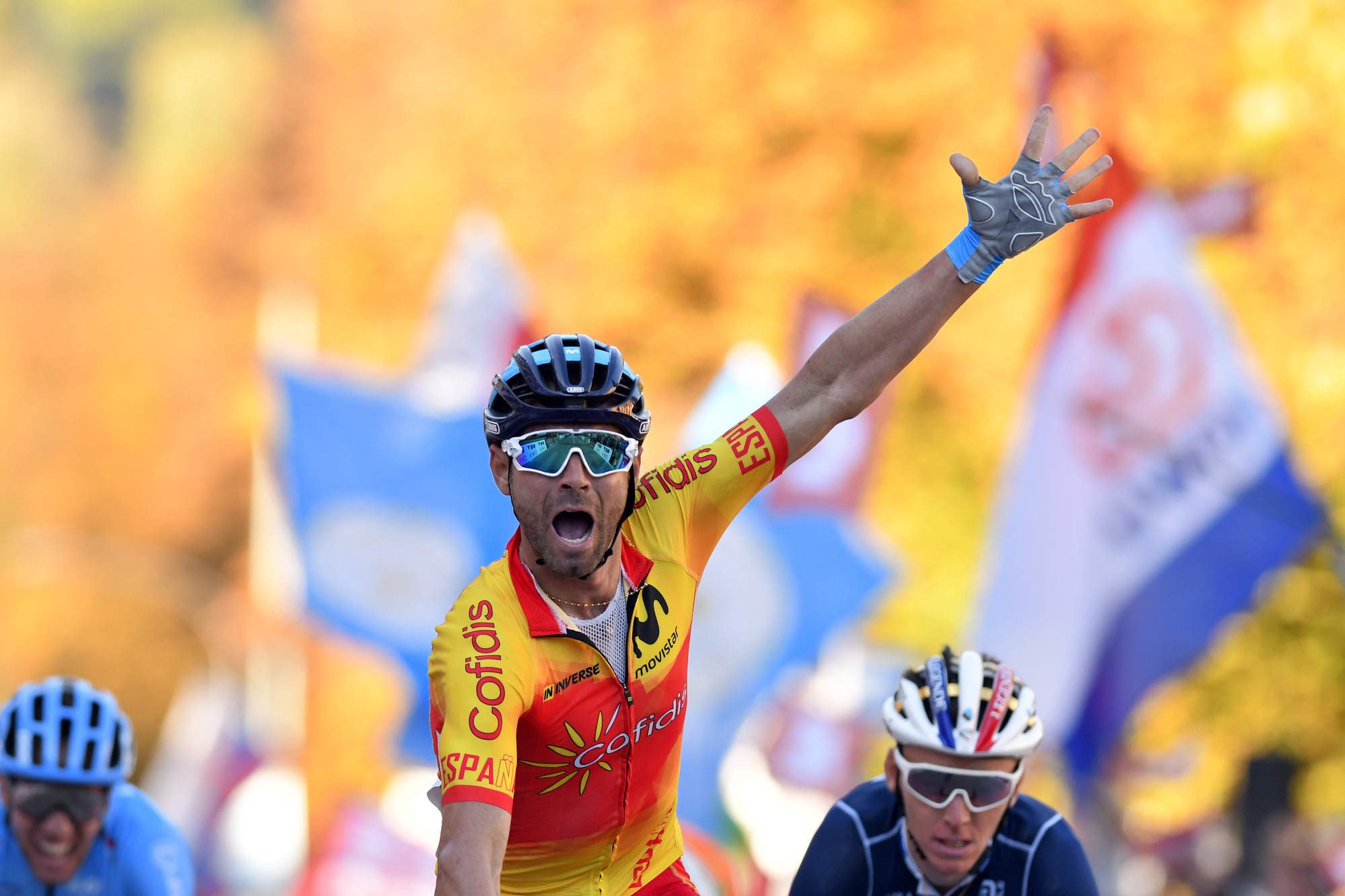
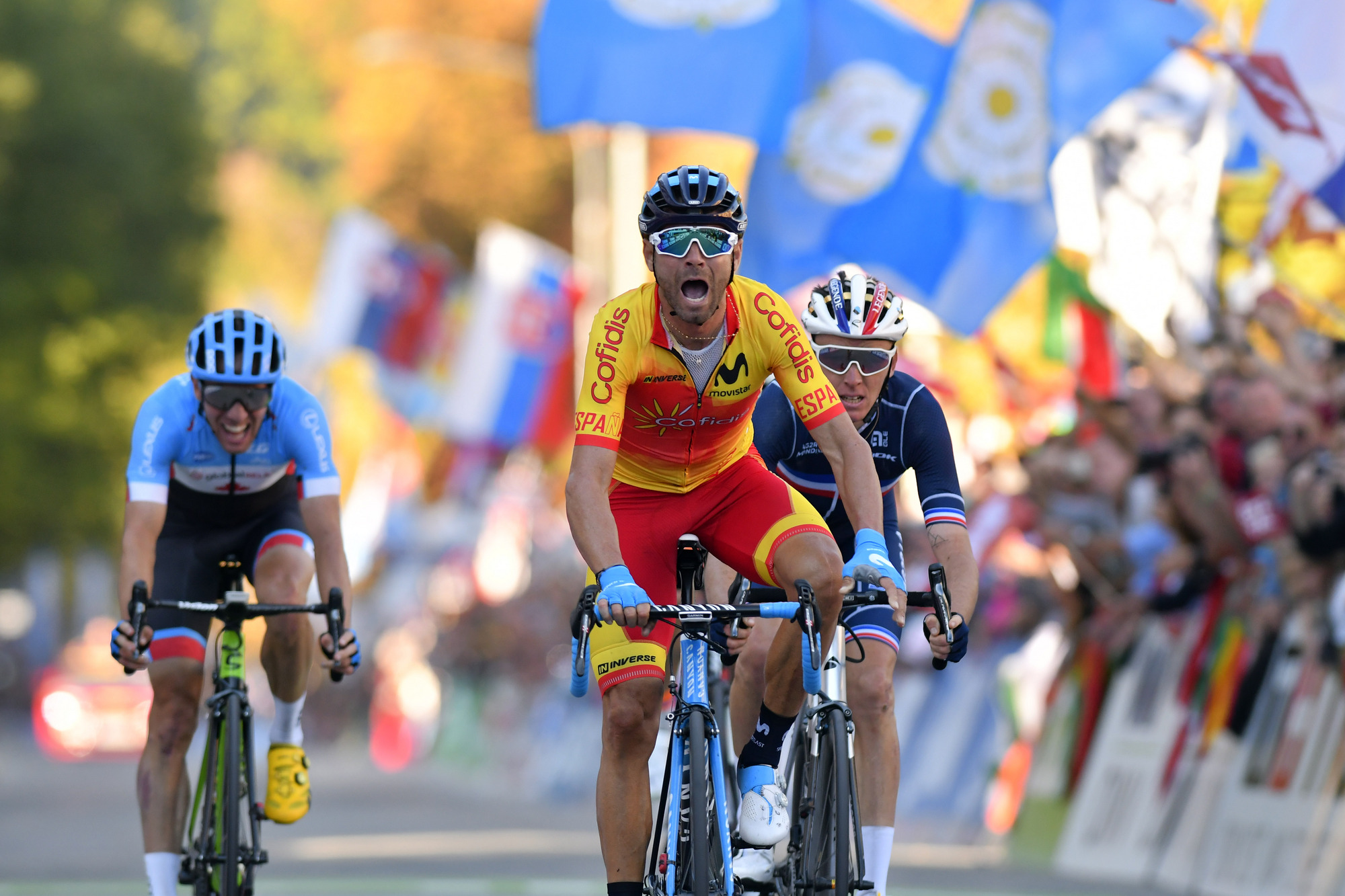
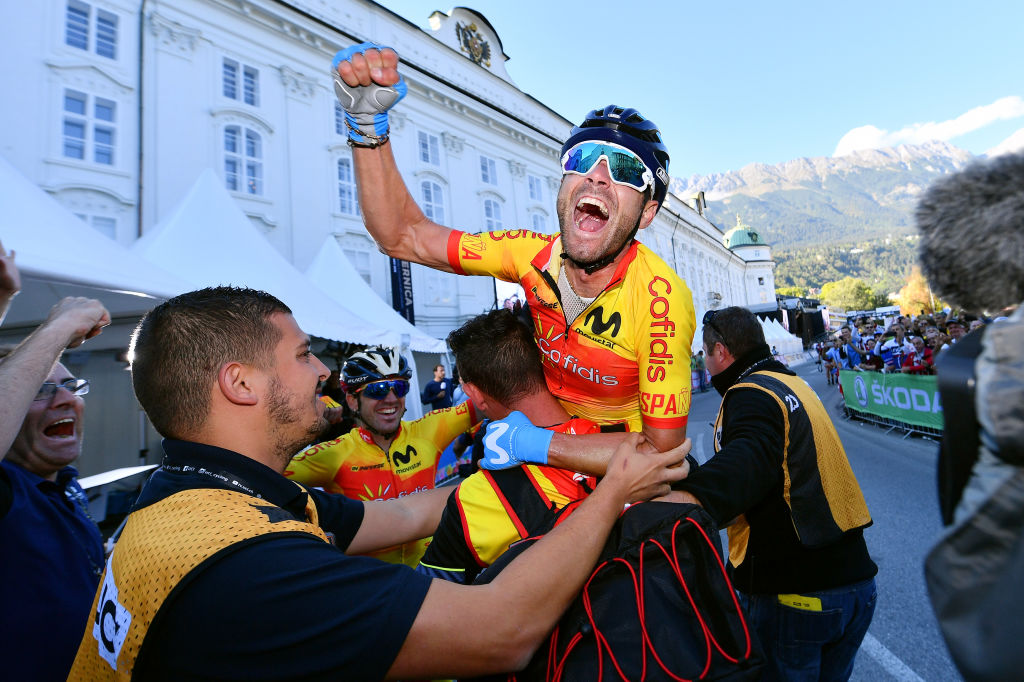
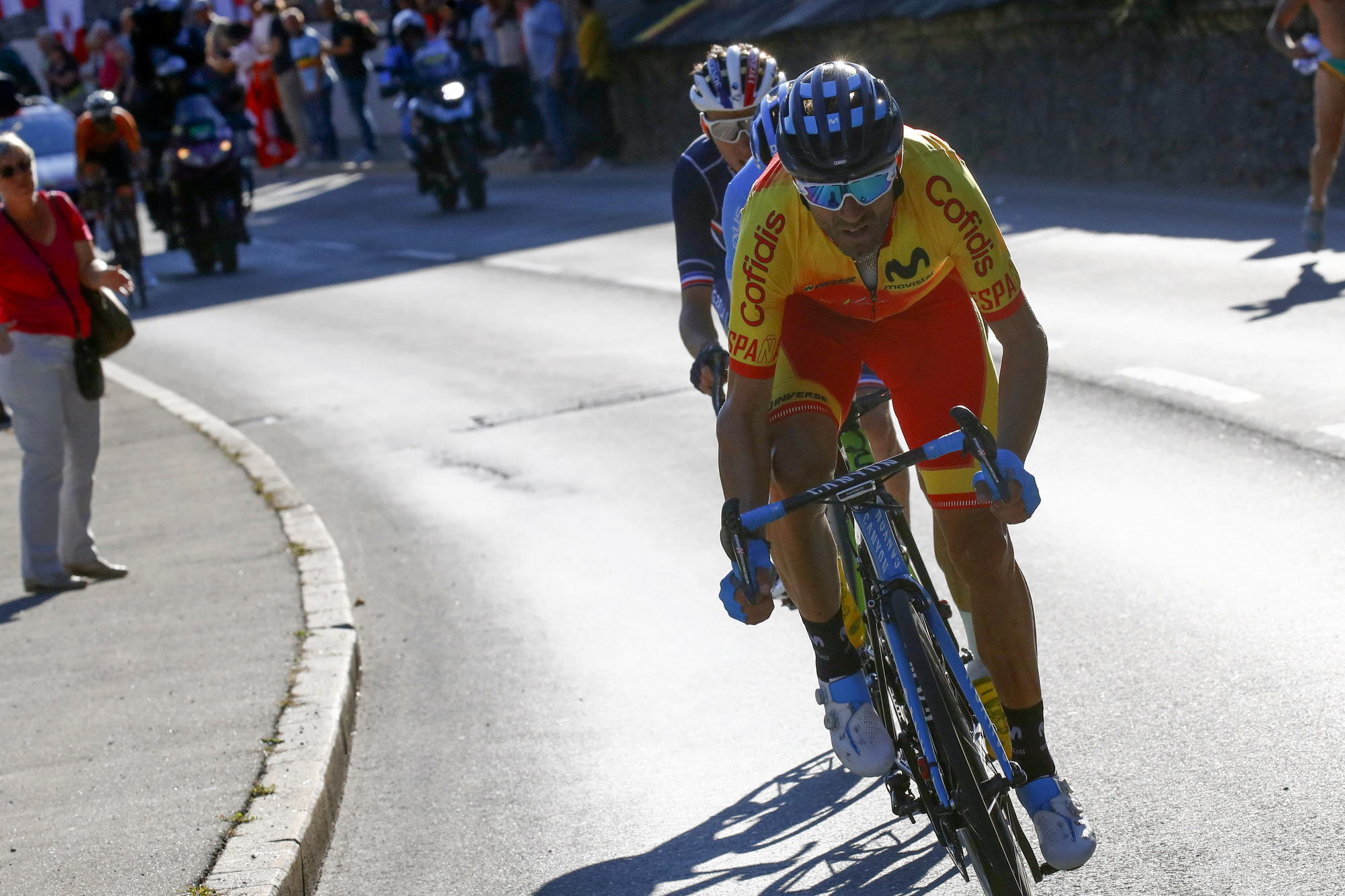
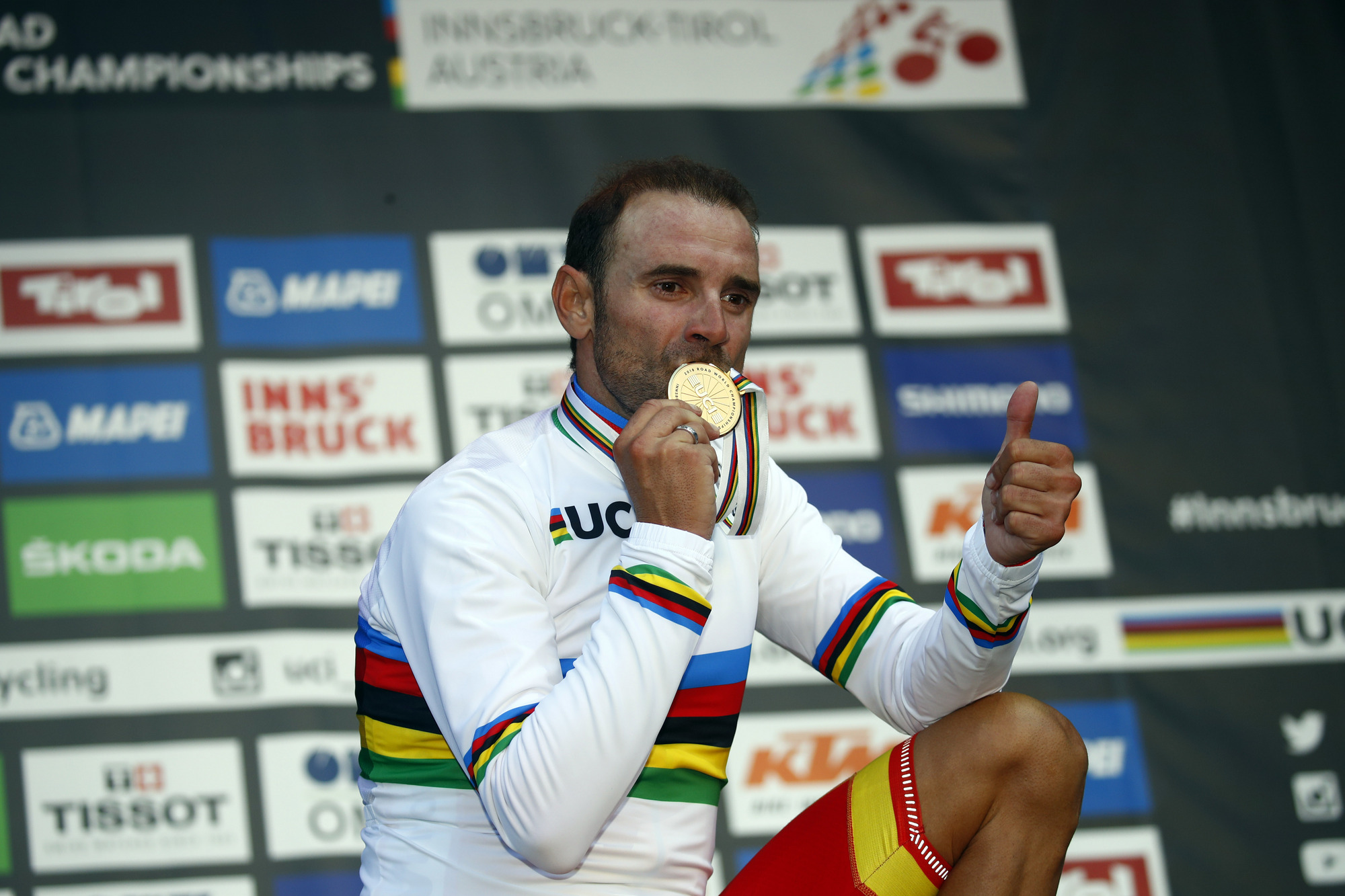
At 38, Alejandro Valverde is the second oldest winner in history of the World Championships elite men’s road race. The Spaniard had looked to be on the back foot in the final week of the Vuelta a España and until Sunday in Innsbruck he held the all-time record for podium finishes in the Worlds without actually netting gold.
But Mikel Zabala, the Movistar coach overseeing Valverde’s training throughout the season, believes that the victory in Innsbruck, which saw the veteran finally break through a glass ceiling that has been resisting him for 15 years, was definitely on the cards before Sunday.
"It was an exceptionally fast Vuelta in the high mountains, this year, as hotly disputed as the Tour de France. Even so, he was up there still fighting for the win, with two days to go, and taking on riders ranging from Peter Sagan in the uphill sprints to Simon Yates on the climbs. So it was anything but a surprise for me."
Despite Valverde’s advanced years, the wins keep on coming. He may have lost out at Liège-Bastogne-Liège, one of his big targets of the season, but he has nevertheless racked up 14 victories this year, including the Abu Dhabi Tour, the Volta a Catalunya, and two stages in the Vuelta a España. According to procyclingstats.com, Valverde’s total of 122 wins is now just two short of the all-time Spanish record of 124, held by 1970s all-rounder Txomin Perurena.
Zabala agreed with Cyclingnews that Sunday’s route bore marked similarities with La Flèche Wallonne, where Valverde holds the all-time record total of five victories, as well as with the Ardennes Classics in general. Valverde has been a reference point in such races since his first Ardennes Weekend double back in 2006, which came prior to his 2010 suspension for his implication in the Operación Puerto blood doping investigation. Valverde returned to competition at the start of the 2012 season.
Like Flèche Wallonne, the 2018 Worlds course’s final ascent was short and brutally steep, preceded by a series of longer, draggy climbs, in some ways reminiscent of the côtes of Liege-Bastogne-Liege – ascents which, on Sunday, hollowed out the weaker riders from the pack, but which still saw around 50 riders at the foot of the Innsbruck ‘wall'.
At the summit, when Valverde was left with just two riders, neither as fast as him in a small group sprint, the race was certainly tipping in his favour. It was also notable that, much like at in Flèche and Liège, Valverde was barely visible throughout the entire race prior to the decisive kilometres of the Worlds on the lower slopes of the Höll Climb. When the climb came, however, he was suddenly exactly where he needed to be.
The latest race content, interviews, features, reviews and expert buying guides, direct to your inbox!
"It was a route which suited Alejandro, more than when there are World Championships which have much more open kind of courses, which aren’t so good for him," Zabala, a professor of sports science in Granada University, told Cyclingnews.
"But I saw he was on a good day, and then on the steep part of the climb, he was well-positioned, even dropping back a little and moving in close to the right side of the road, where it was less badly tarmacked, to look for a bit more of a space. Then he came back up again quickly to find his place on that side, so you could see he was in control of events, handling it all."
At the top, rather than try to go on the attack and risk a counter-move organising behind, Valverde preferred to stay with his two rivals, Michael Woods (Canada) and Romain Bardet (France). "Three riders probably worked together because they knew that they were all guaranteed a medal at the least," said Zaballa, "and that’s always a help. So he played his best card strategically, and it worked out best."
Special impact
Zabala, who has been working specifically with Valverde for the past four years – he has been with Movistar for the last six seasons – believes that the bad crash of the 2017 Tour de France provided the rider with an extra boost to his motivation in the twilight years of his career. A big cloud had an equally big silver lining.
"It marked a crossroads for him. He could have retired or, as he did, he could have rediscovered something fundamental for him, that he can’t conceive a life without cycling," Zabala said.
Despite 15 years of hitting the crossbar, as it were, at the World Championships, Valverde refused to give up on his quest for a rainbow jersey. But was Valverde obsessed with the Worlds?
"I wouldn’t say that," said Zabala. "But if you remember the way he cried when he made his first ever podium of the Tour in 2016, it was a bit like the way he cried yesterday in Innsbruck. So many years of pressure, of not getting what he wanted, and finally the pressure lifts."
Valverde’s win has been headline news in Spain, with many of the main dailies featuring the Spaniard crossing the finish line as their front page photograph. Marca even went so far as to have a special double-spread photo of the Spaniard on both front and back pages. Zabala believes that the Worlds has had a special impact on the country.
"Unfortunately, I think Spain is overly used to success in sport, not just cycling," Zabala said. "But I think there’s been a wave of support for him here after he missed out in the Vuelta, an appreciation that he’s only human. It has helped people see what his finally taking the World Championships, and his wearing the rainbow jersey next year, really signifies."
Alasdair Fotheringham has been reporting on cycling since 1991. He has covered every Tour de France since 1992 bar one, as well as numerous other bike races of all shapes and sizes, ranging from the Olympic Games in 2008 to the now sadly defunct Subida a Urkiola hill climb in Spain. As well as working for Cyclingnews, he has also written for The Independent, The Guardian, ProCycling, The Express and Reuters.

